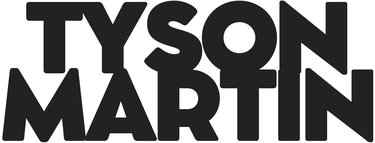CISO Interview Questions for CEOs and CHROs
How to Select a Strategic Partner for Growth, Trust, and Resilience


How to Select a Strategic Partner for Growth, Trust, and Resilience
The Stakes Have Changed
You don’t need to become a cybersecurity expert to hire one but you do need to ask the right questions.
If you’re a CEO or CHRO, you already understand that trust is the bedrock of your business. Whether you’re serving millions of customers or securing intellectual property, trust is earned through consistency, safety, and resilience. And in today’s digital world, one executive sits at the intersection of all three: the Chief Information Security Officer (CISO).
Hiring a CISO isn’t about filling a technical gap. It’s about finding a strategic partner who can protect the business, guide culture, support innovation, and inspire confidence from the boardroom to the front lines.
So how do you vet a CISO if you’re not steeped in security? You shift the conversation from jargon to leadership. From features to outcomes. From control to collaboration.
This guide is written for you the business leader who wants to make a confident, business-aligned hire that strengthens your organization long after the onboarding paperwork is filed.
Section 1: The Problem
Most CEOs and CHROs don’t know what to ask when hiring a CISO and that puts the entire business at risk.
Traditional interview processes focus heavily on technical proficiency. But technical skills alone won’t help your company manage complex regulatory requirements, reduce customer risk, win large enterprise contracts, or respond to a breach under pressure.
You don’t need a “cyber cop.” You need a business leader who speaks the language of growth, trust, and transformation and knows how to protect it.
Section 2: The High-Stakes Reality
The cost of hiring the wrong CISO is measured in more than dollars. It’s measured in stalled growth, fractured trust, and boardroom fallout.
Without the right leadership in this seat:
Your board gets frustrated by unclear answers.
Your teams get bogged down by unproductive red tape.
Your sales deals get delayed by security questionnaires.
Your culture turns fearful instead of empowered.
Hiring a CISO is not a compliance checkbox. It’s one of the most important strategic leadership hires you’ll make in the next decade.
Section 3: The Plan - Ask Better Questions
The solution isn’t becoming a cybersecurity expert. It’s asking the kinds of questions that reveal if your candidate is the right leader for your business.
Below are interview questions curated specifically for CEOs and CHROs designed to draw out how a candidate thinks, leads, communicates, and partners.
🚀 Part 1: Leadership and Business Alignment
These questions help you understand how well the candidate aligns security with business strategy.
1. “How do you align your security priorities with business growth goals?”
Look for an answer that starts with understanding the business model, growth drivers, and strategic risks—not just a list of technologies or frameworks.
2. “Tell us about a time you helped accelerate a business initiative instead of slowing it down.”
Great CISOs find ways to enable speed safely. They should be able to speak to partnerships with product, marketing, or operations that removed friction or opened new doors.
3. “How do you balance protecting the business with empowering innovation?”
You’re looking for a mindset—not just methods. Good CISOs protect and enable. They don’t use fear as a tool.
4. “What’s your approach to measuring the ROI of security?”
A strong CISO should articulate how security reduces risk, improves trust, supports sales, and protects enterprise value not just how it avoids fines.
👥 Part 2: Culture and Communication
These questions dig into how a candidate leads people and influences culture.
5. “How do you build a culture of security without instilling fear?”
You’re looking for someone who understands that culture eats policy for breakfast. Great CISOs turn security into a companywide value not just a compliance checklist.
6. “What role should HR and people teams play in our cybersecurity strategy?”
If they don’t mention employee onboarding, insider risk, or upskilling, that’s a red flag. A modern CISO partners with HR early and often.
7. “How do you handle communication with non-technical executives and board members?”
Ask for examples. Can they break down complex topics into business-relevant insights? Do they know how to educate without patronizing?
8. “What are the top three cultural risks you’ve seen that increase the chance of a cyber incident?”
Look for behavioral insights, not just system weaknesses. Cultural signals often predict cybersecurity exposure.
🧭 Part 3: Crisis Readiness and Executive Presence
These questions test whether they can lead during a crisis and inspire confidence.
9. “Describe a time you had to brief the board or C-suite after a serious incident. How did you handle it?”
You want calm under pressure, transparency, and a clear command of business impact—not just technical detail.
10. “In the first 24 hours of a cyber crisis, what decisions are most important to make?”
This shows how they prioritize, communicate, and lead. You’re not looking for technical triage—you’re looking for executive thinking.
11. “If we had a breach tomorrow, what would your top priorities be in the first hour, day, and week?”
Their answer will reveal if they know how to move from panic to action to recovery—and how well they understand operational impact.
12. “How do you ensure cross-functional alignment when responding to incidents?”
A modern CISO isn’t a lone wolf they coordinate with legal, HR, marketing, finance, and operations. They should describe systems and routines for this.
🔐 Part 4: Customer Trust and Go-to-Market Support
These questions test how they help the business win.
13. “How do you support sales and customer success in security reviews and procurement conversations?”
A strategic CISO doesn’t hide behind policy they become a business enabler by answering security concerns that unlock deals.
14. “Have you helped reduce sales cycle times or close enterprise customers by improving trust?”
If they’ve worked with sales, they should have stories where security was a competitive advantage.
15. “What are the biggest concerns customers raise about our industry’s security—and how would you address them?”
You want to know if they’re paying attention to industry reputation, customer trust, and the narratives buyers respond to.
📈 Part 5: Vision, Strategy, and Future Readiness
These questions reveal how forward-thinking the candidate is—and how well they can build a resilient future.
16. “What’s your philosophy on emerging threats like AI-driven attacks or deepfakes?”
You’re not looking for hype you want thoughtful, grounded insights on how to adapt and respond to change.
17. “What’s one strategic risk most organizations overlook—and how would you get us ahead of it?”
Top-tier CISOs don’t just respond—they anticipate. This question shows how proactive they are.
18. “How would you build a 3-year security roadmap that aligns with our business objectives?”
You want to hear about vision, not just fire drills. The best CISOs have a roadmap that balances short-term resilience with long-term enablement.
19. “How do you partner with CIOs, CTOs, and other technology leaders without turf wars?”
Look for signals of collaboration, not empire building. Security leaders must be master integrators.
20. “If you could fix one thing in how most organizations approach cybersecurity, what would it be?”
This gives insight into their leadership philosophy, priorities, and whether they challenge the status quo.
Section 4: The Transformation
You don’t need to be a cybersecurity expert. You need to find one who thinks like a business leader and acts like a trusted partner.
When you ask the right questions, you position yourself to make a decision based on what actually matters: leadership, judgment, communication, business alignment, and trust.
Great CISOs don’t just secure infrastructure. They secure opportunity. They help you move faster, not slower. They reduce fear while increasing resilience. They build trust with every department, every board member, every customer.
They don’t just protect the company—they make it better.
Section 5: The Call to Action
Use this guide as your blueprint. The future of your business may depend on it.
Whether you’re about to post the job, interview your first candidate, or make a final selection bookmark this list. Share it with your search firm. Use it as your interview script.
But most importantly, remember this:
Hiring a CISO is not a defensive move. It’s an investment in the confidence, clarity, and control that every modern business leader needs.
Make the hire count.
Appendix: How to Use This Guide
Before the interview: Select 6–8 questions based on the candidate’s background.
During the interview: Mix operational and visionary questions to test range.
After the interview: Ask yourself, “Would I trust this person to brief the board during a crisis?” If the answer is no—keep looking.
